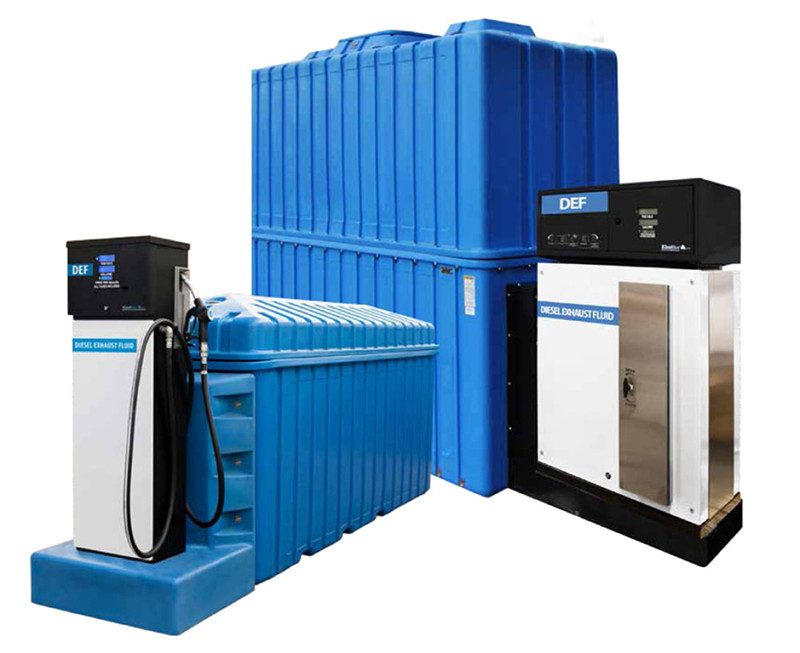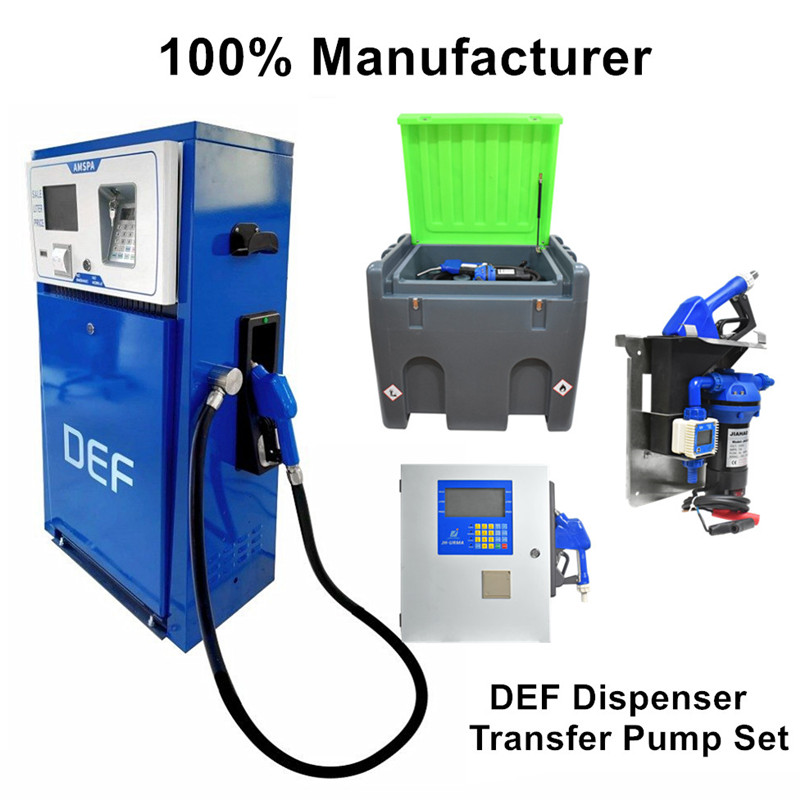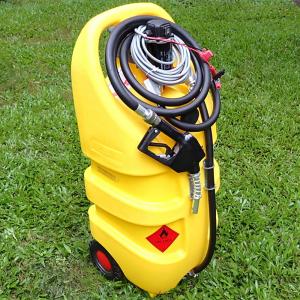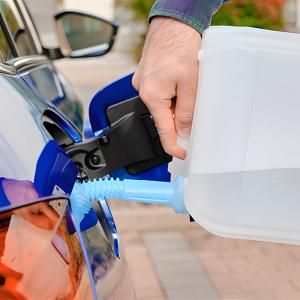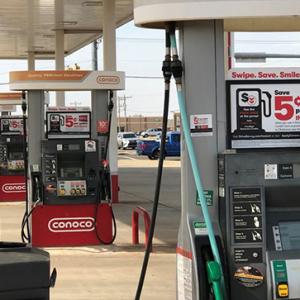What is a DEF Dispenser? The Ultimate Guide for Diesel Fleet Owners
In the world of modern diesel engines, a small blue liquid plays a critical role: Diesel Exhaust Fluid (DEF). And the DEF Dispenser is the professional equipment designed to handle, manage, and dispense this crucial fluid efficiently, accurately, and cleanly. It's far more than a simple pump; it's key infrastructure for ensuring your fleet's compliance and reducing your total operating costs.
Why Your Diesel Equipment urgently Needs a High-Quality DEF Dispenser
For any business reliant on diesel equipment—whether it's a vast trucking fleet, a busy construction site, large agricultural machinery, or mining equipment—DEF consumption is an ongoing operational cost. Many still rely on manually pouring from small jugs or drums, a method that seems inexpensive but hides significant risks and inefficiencies. A high-quality DEF dispenser is the essential solution to these pain points.
The High Cost of Manual Handling: Four Critical Drawbacks
-
Extreme Contamination Risk: DEF is a high-purity chemical solution (32.5% urea and 67.5% deionized water). Exposure to air or dirty containers can easily lead to contamination from impurities, metals, or bacteria. Contaminated DEF crystallizes, clogging filters, dosing pumps, and the SCR catalyst, leading to repair costs running into thousands of dollars.
-
Poor Operational Efficiency: Manually handling and pouring from 20-liter jugs is time-consuming and labor-intensive. For a heavy-duty truck requiring dozens of liters, this wastes precious driver time during breaks, directly reducing vehicle uptime and operational efficiency.
-
Higher Total Cost of Ownership: Packaged DEF in jugs or small drums carries a much higher price per liter than bulk purchases in IBC totes or storage tanks. When combined with added labor costs and the risk of equipment damage, the true cost of manual handling is surprisingly high.
-
Inventory and Management Chaos: Stacks of plastic jugs consume valuable warehouse space and require complex inventory management. Disposing of empty containers also adds environmental hassle and cost.
How a DEF Dispenser Solves Your Operational Headaches
Investing in a professional DEF dispenser upgrades your operation from a traditional maintenance model to a modern, efficient, and reliable one.
-
Eliminates Contamination, Protects Assets: High-quality dispensers use stainless steel and dedicated sealed plumbing, ensuring DEF remains isolated from the storage tank to the vehicle's tank. This eliminates the risk of contamination, protecting your engine's expensive SCR system.
-
Dramatically Boosts Efficiency: With a pump-operated system similar to a fuel island, drivers can refill DEF in minutes—ten times faster than manual pouring. This reduces downtime, allowing your fleet to complete more jobs.
-
Lowers Your Total Cost of Ownership (TCO): Buying DEF in bulk drastically reduces your cost per liter. The savings on fluid, combined with reduced labor costs, avoided repairs, and gained efficiency, contribute to a strong Return on Investment (ROI), often paying for the dispenser itself in a short time.
-
Enables Smart Management: Modern dispensers can integrate with fleet management systems using IC cards, PIN codes, or vehicle identification. This allows you to track DEF usage per vehicle, department, or driver accurately, enabling precise cost control and budgeting.
How to Choose the Right DEF Dispenser for Your Operation
Not all dispensers are created equal. Selecting the right model for your specific application is crucial.
1. Select by Application & Setting
-
Fleet Terminal/Fuel Island: Choose a high-flow, fixed-position dispenser (e.g., 60-80 liters/minute), often connected to a bulk storage tank. This is ideal for centralised, rapid refueling.
-
Fueling Stations: Opt for a side-attach DEF dispenser that integrates with existing Fuel pumps or a standalone pedestal model. This provides a valuable service to customers and creates a new profit center.
-
Construction, Mining, Agriculture & Remote Sites: A mobile DEF dispensing cart (with a pump and wheels) or a small transfer tank system is perfect for refilling equipment灵活ly across large or remote job sites.
2. Key Features to Look For
-
Materials & Compatibility: Ensure all wetted parts (pump, plumbing, hose, nozzle) are made from stainless steel or DEF-compatible plastics to prevent corrosion.
-
Filtration System: A built-in, high-quality particulate filter (typically 1-5 microns) is essential as the last line of defense for fluid purity.
-
Drip-Free Nozzle: An automatic sealing nozzle prevents messy leaks and post-dispense drips, avoiding crystallisation and waste.
-
Metering & Control: An accurate meter and control system ensure you dispense the exact amount needed. Look for features like preset volume or amount dispensing for easy management and reconciliation.
-
Cold Weather Packages (Optional): In freezing climates, choose a system with tank and line heaters to prevent DEF from freezing (DEF freezes at 12°F / -11°C).
Conclusion: Investing in a DEF Dispenser is Investing in Your Future
For any serious business managing diesel assets, a professional DEF dispenser is no longer an "option" but a "necessity." It is more than a dispensing tool; it is a risk mitigation tool, an efficiency tool, and a cost management tool.
It provides not just clean fluid, but also guaranteed vehicle uptime, compliance, clear operational data, and a powerful competitive advantage. Contact a professional equipment supplier today to find the right DEF dispensing solution tailored for your business.
